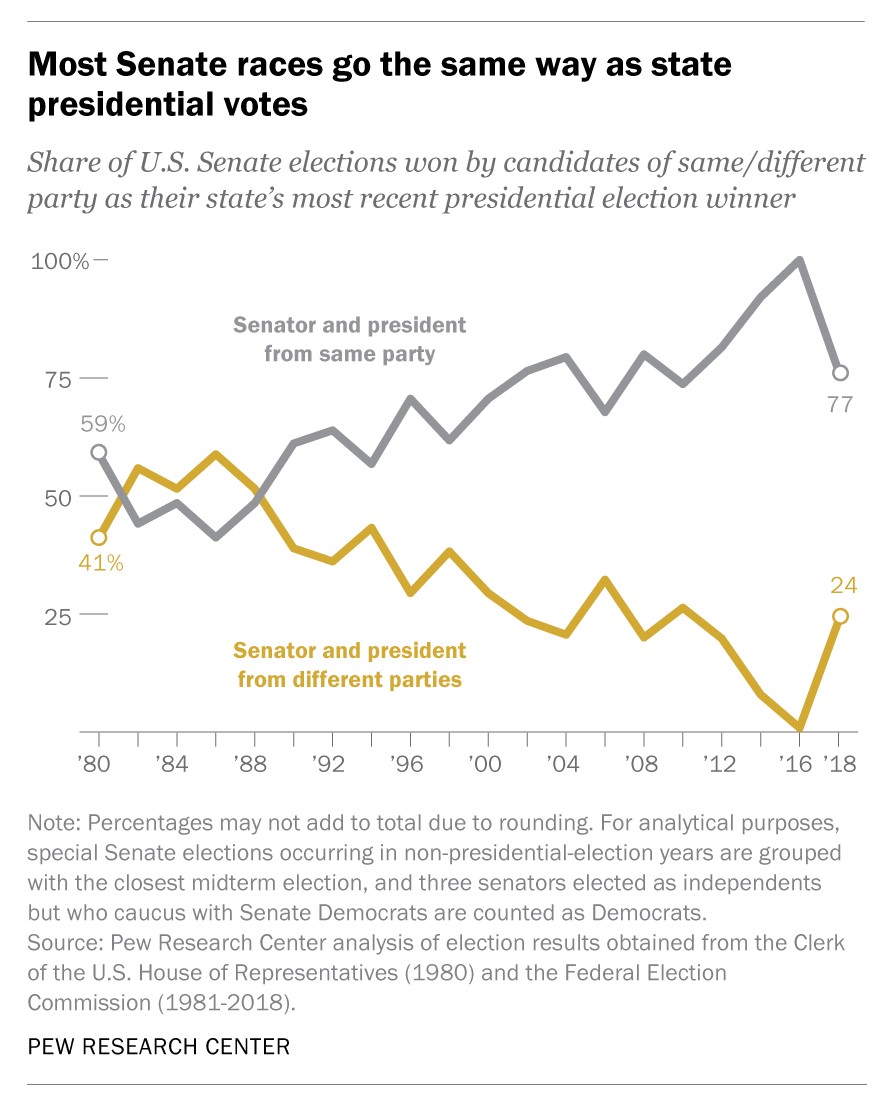
Monday Sep 21 2020 15:12

4 min
While the race for the White House has received outsized attention, developments such as the failure to reach a new coronavirus relief bill and the looming threat of a government shutdown have heightened the stakes in the battle for control of Congress.
The House of Representatives looks firmly in the hands of the Democrats after the inroads they made in the 2018 midterms. Control of the Senate is therefore crucial. It’s currently in Republican hands and the Democrats would need to win four seats of the twenty-three up for grabs in order to gain an overall majority.
With party now trumping candidate, the general momentum towards the Democrats should give them some hope. 2016 was the first year on record where every single state holding Senate elections voted for the same party for Senate as for president.
It’s no longer the case that voters split their ticket when they go to the polls. For example in 1980, despite Republican Ronald Reagan winning the White House, 12 of 31 Senate seats went to the Democrats.
Now though, the electorate is so polarized that party dominates across elections. If you voted Trump, you vote Republican across your ballot paper.

This means state-wide elections have increasingly been nationalized: Senators struggle to separate themselves from their national parties. This has been exacerbated under President Trump, where almost every Republican Senator has embraced him of fear of losing his conservative base – this is especially the case for the Republican Senator in Arizona, Martha McSally, who has pivoted to the right and linked her fate inextricably to Trump’s.
Rare candidates, like Maine Senator Susan Collins, have been able to maintain an identity distinct to the national party’s and keep split-ticket voting alive – but even Collins’ long-time local reputation as an independent, in a centrist state with a history of electing moderate women, is under threat for her polarizing pro-Trump voting record. She backed Brett Kavanaugh for his confirmation to the Supreme Court, in support of her President – and saw her popularity with female voters plummet.
With any coronavirus relief unlikely to pass before the election, control of the Senate will be crucial to any alleviation of the recession. This has been exacerbated by the death of Supreme Court Justice Ruth Bader Ginsburg. Party politics will now be bogged down in finding her replacement, rather than finding a fiscal compromise.
While Trump has made this a key issue, going as far as releasing an unsurprisingly political list of possible appointees, Biden has in turn also made this a focus of his candidacy, promising to nominate a historic first: a black woman. Given the increasing frequency of constitutional hardball around Supreme Court confirmations, control of the Senate will be a prerequisite to a successful nominee.
Given that the states in the Senate up for re-election are very Republican, this development will energise the base, reducing the likelihood of a Democratic majority.
However, on the Presidential level, the blue wall which deserted Hillary Clinton in 2016 looks likely to be rebuilt, given the intensely partisan nature of the battle to come. Mitch McConnell should be pleased by this weekend’s news, Donald Trump should not.
With both sides becoming more entrenched the elections look set to deliver a split between the legislature and the executive. With a more polarized Congress, key platform items promised by both candidates will be tougher to achieve. Expect partisan investigations and tense hearings to persist no matter who wins.
